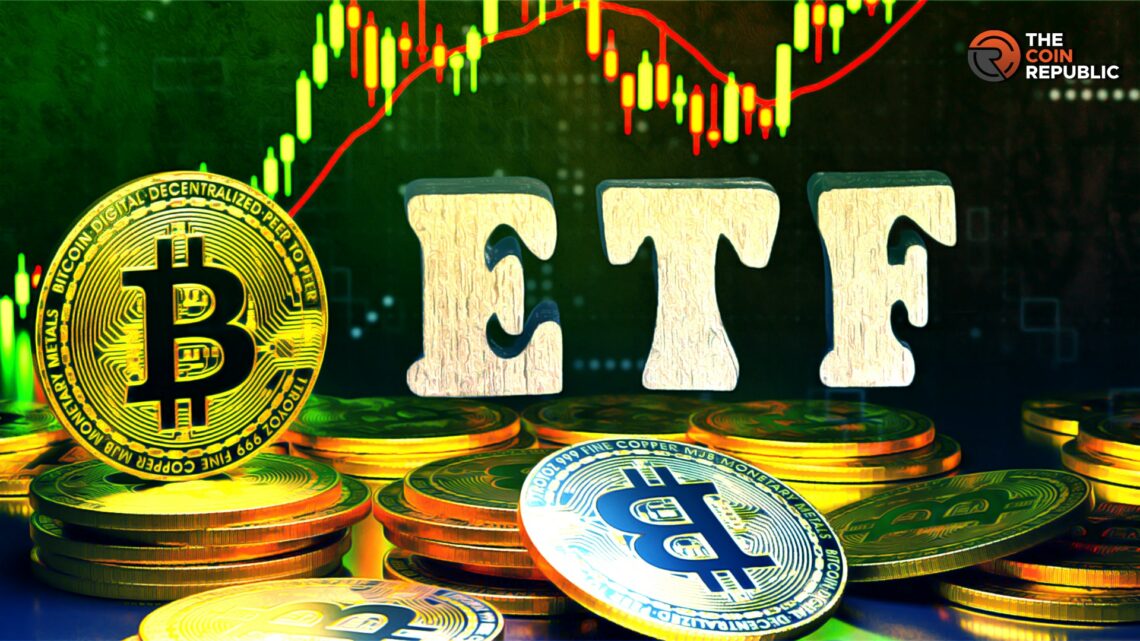- 1 With the knowledge of Bitcoin’s future ETF, traders can do a lot. It’s a derivative trading instrument with plenty of possibilities.
- 2 However, traders must understand it along with its related concepts to the fullest. Only then, they can choose the right thing for themselves.
Bitcoin is one of the most precious investment instruments which also places it out of reach for many. Thankfully, markets have offered ways with which people can invest in this numero uno crypto. Using a bitcoin futures ETF, traders can invest in it without actually buying the assets. For the uninitiated, an exchange-traded fund (ETF) is a form of security pegged against an underlying asset.
With ETFs, one can invest in stocks, commodities, metals, and crypto without buying them, and that’s exactly what they do when they buy a Bitcoin futures ETF. This extensive investment option comes with many advantages. To know them, potential investors must dig into all that BTC ETF offers.
Insights into Bitcoin Futures ETF
First of all, investors must know that exchange-traded funds are regulated by the government authorities. As mentioned above, they can represent a broad array of assets. In a way, they are somewhat like mutual funds but with so many distinctions. Traders can buy and sell shares of an ETF just like stocks during the market hours.
Bitcoin futures ETF allows investors to make profits out of the crypto’s price movements. However, this variant of the ETF will track BTC futures contracts instead of the real-time price. For those who aren’t familiar with Bitcoin futures, it’s a kind of derivative instrument. Under this arrangement, two parties agree to buy or sell bitcoin at a predetermined price at a certain date.
They sign a formal agreement which gets traded on an exchange. One must also know that a derivative tracks the price of an underlying asset. On the agreed date, both parties are obligated to execute the transaction. In case they miss the date and the contract expires, the buying party will have to purchase it again.
They will have to buy it at the spot price which would depend on the market conditions. There are some notable factors about the Bitcoin futures ETF that traders must know.
They must remember that a futures contract is a zero-sum game. When one person makes profits, another sustains losses.
The expiry date is an indispensable part of a futures contract. They may choose another party to fulfill the deal or wait for the expiration date to settle the contract.
The prices of Bitcoin futures may differ from the market price of Bitcoin. It depends on the market sentiments of future traders prevalent in the market. Thus, if more people are expecting the BTC price to rise, the contract will bear a higher rate than the current market value. If the scenario is the opposite with people bearish on BTC, the contract price will fall.
Despite that, the common scenario is that the spot price and contract price converge on the expiration date.
Understanding the Technicalities of the Bitcoin Futures ETF
While tracking the price of an underlying asset, the Bitcoin futures ETF enables traders to profit from price trends. Again, it all happens without them owning the asset. Usually, the ETF price is correlated with that of the underlying asset. The investors track the prices of both and leverage the difference.
So the investors of Bitcoin futures ETF have to monitor the prices of both very closely. The institutional investors also try to maintain a good volume of actual crypto. By doing this, it can support the price of its ETF. This strategy has been quite popular among companies investing in Bitcoin ETFs, so much so that the SEC is mulling over supporting it officially.
Lately, the chairman of SEC, Gary Gensler, indicated that they may approve the Bitcoin futures ETF. Notably, many companies including the finance major BlackRock have applied for it. However, Gensler particularly talked about the one on the Chicago Mercantile Exchange (CME).
Essentially, the ETF derives its value from Bitcoin futures and its price movements. As per the current setting, the company issuing the ETF must hold positions in the BTC futures. They must also peg the price of the ETF against that of BTC futures contracts.
Distinguishing Bitcoin ETF & Bitcoin Futures ETF
There’s one basic difference that differentiates Bitcoin ETF from Bitcoin futures ETF. While the former tracks the actual coin’s spot price, the latter is backed by derivatives of BTC futures contracts. The price of BTC futures may vary from its market price due to various factors. Furthermore, the Bitcoin ETF rules out any possibility of price difference. It reflects the exact price of the real Bitcoin as it’s backed by one.
Traders can make the most of investment instruments if they know them fully. By tracking the prices carefully, they can make substantial profits with Bitcoin ETF and Bitcoin Futures ETF. Hopefully, they have gained more knowledge about both after reading this article.

With a background in journalism, Ritika Sharma has worked with many reputed media firms focusing on general news such as politics and crime. She joined The Coin Republic as a reporter for crypto, and found a great passion for cryptocurrency, Web3, NFTs and other digital assets. She spends a lot of time researching and delving deeper into these concepts around the clock, and is a strong advocate for women in STEM.


 Home
Home News
News










